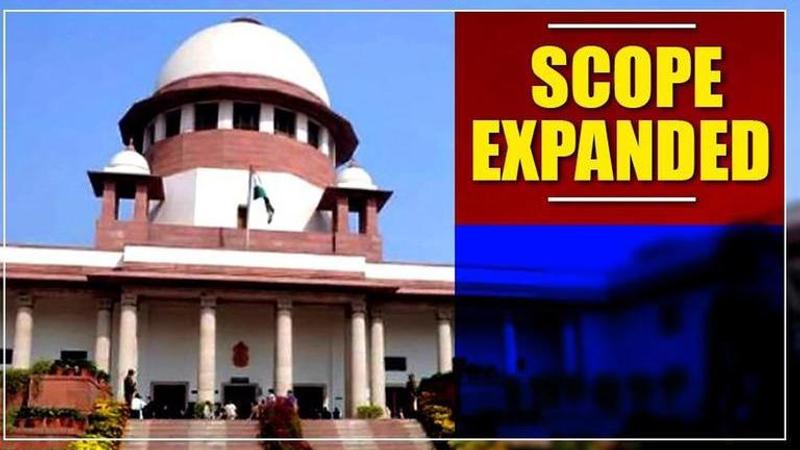Published 11:52 IST, November 14th 2019
SC's Sabarimala verdict expands scope, includes issues pertaining to other religions
A 5-member SC Constitution bench has expanded the scope of the Sabarimala matter by clubbing the issues pertaining to women belonging to other religions.

A 5-member Constitution bench of the Supreme Court comprising Chief Justice of India Ranjan Gogoi, Justice Nariman, Justice Khanwilkar, Justice Chandrachud, and Justice Malhotra hearing the Sabarimala review pleas expanded the scope of the matter on Thursday. The majority judgment has referred a whole range of issues including the entry of women in mosques and the tower of silence, the legality of female genital mutilation in the Dawoodi Bohra community along with the Sabarimala matter to a 7-member larger bench. Noting that the endeavour of the petitioner was to revive the debate on what constitutes an integral part of religion, the CJI questioned whether a constitutional court could interfere in the matters of faith. He mentioned that in a legal framework, the courts should tread carefully with issues regarding religious practices.
Overlapping issues
CJI Ranjan Gogoi observed that both sections of the same religious groups had the right to propagate religious practices. Thereafter, he added that the issues arising in the present case and regarding Muslim women and Parsi women may be overlapping. Furthermore, he contended that it was high time that the SC evolved a judicial policy to do justice to constitutional principles. However, Justice Nariman read out the dissenting judgment and stated that the issues of Muslim or Parsi women could not be clubbed with the Sabarimala matter as they were not before the court.
SC reserved its verdict on February 5
The original verdict of the SC sparked off protests across Kerala. The Travancore Devaswom Board (TDB) which manages the shrine, argued that the SC could not interfere with a century-old belief. The ban on entry of women has been justified on the grounds that Lord Ayyappa, the presiding deity is celibate. On the other hand, the government of Kerala supported the verdict maintaining that religious practices that clashed with fundamental rights could be set aside. After hearing the review petition filed by the TDB, Pandalam Royal Family and a group of devotees, the Constitution bench had reserved its verdict on February 5.
Updated 13:02 IST, November 14th 2019




